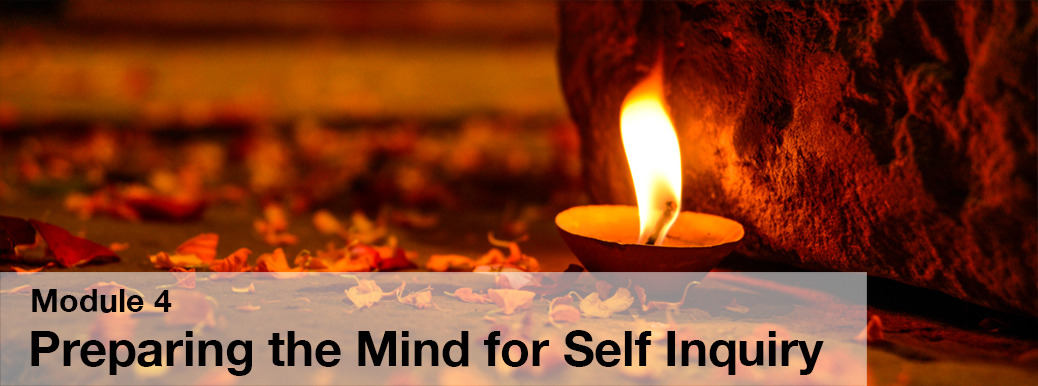Introduction
On the face of it, it seems that Vedanta leaves us high and dry. I need to be qualified to study Vedanta, but how do I gain the qualifications unless I study Vedanta in the first place?
It is not so. Vedanta says that you need to have all four qualifications in some degree to pursue Self Inquiry. How did you come to Vedanta at all, unless you had some discrimination (Viveka) and some desire (Mumukshutva) to be free?
You need not be 100% qualified, you just need some qualification. You need to have some spiritual maturity to pursue scriptural studies. Once you start practising Vedantic methods diligently your qualifications will improve, and it will get easier and easier to assimilate the knowledge.
Vedanta has systematic & practical methods for students to improve their qualifications. One has to incorporate these methods as part of one’s day to day life.
Some of the methods that we list in this chapter will be covered more thoroughly in the future modules. So it’s okay if you don’t understand them right now.
How To Gain The 4 Qualifications?
Karma Yoga
When you employ a Karma Yoga attitude towards all actions, it purifies the mind, in which these three qualifications flower and nourish.
We’ll discuss Karma Yoga in sub-module 8.2.
Upasana Yoga
Upasana Yoga involves disciplining oneself. It also consists of various types of meditations to develop different aspects of our mind.
Upasana Yoga is discussed in sub-module 8.3.
The Vedantic Process
So the entire Vedantic process can be divided into two stages.
The first stage is acquisition of the necessary qualifications to study Vedanta. This involves the practise of Karma Yoga and Upasana Yoga.
And the second stage – once we are qualified – is acquisition of Self-Knowledge, which involves Jnana Yoga (Knowledge Yoga).
So Karma Yoga plus Upasana Yoga makes a person qualified for Self Inquiry (Jnana Yoga or Knowledge Yoga). Jnana Yoga gives me Self-Knowledge. And Self-Knowledge, in turn, gives me Moksha (freedom).
Summary
| 1. | One does not need to be 100% qualified to start studying Vedanta. We just need some qualification, which we develop upon as we practise Vedanta. |
| 2. | The first three qualifications of Discrimination, Dispassion and Desire for freedom, are developed by living a life of Karma Yoga. The fourth qualification of Discipline can be developed by the practice of Upasana Yoga. |
| 3. | The first stage of the Vedantic process is acquisition of necessary qualifications through Karma Yoga and Upasana Yoga, and the second stage is acquisition of Self-Knowledge through Jnana Yoga. |


